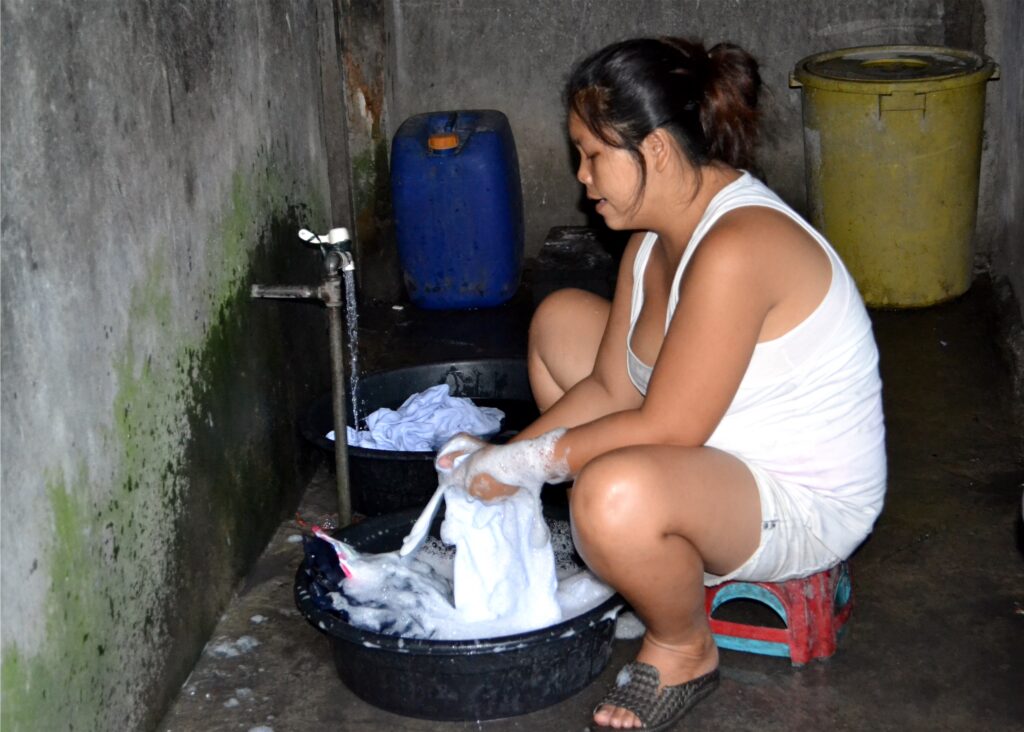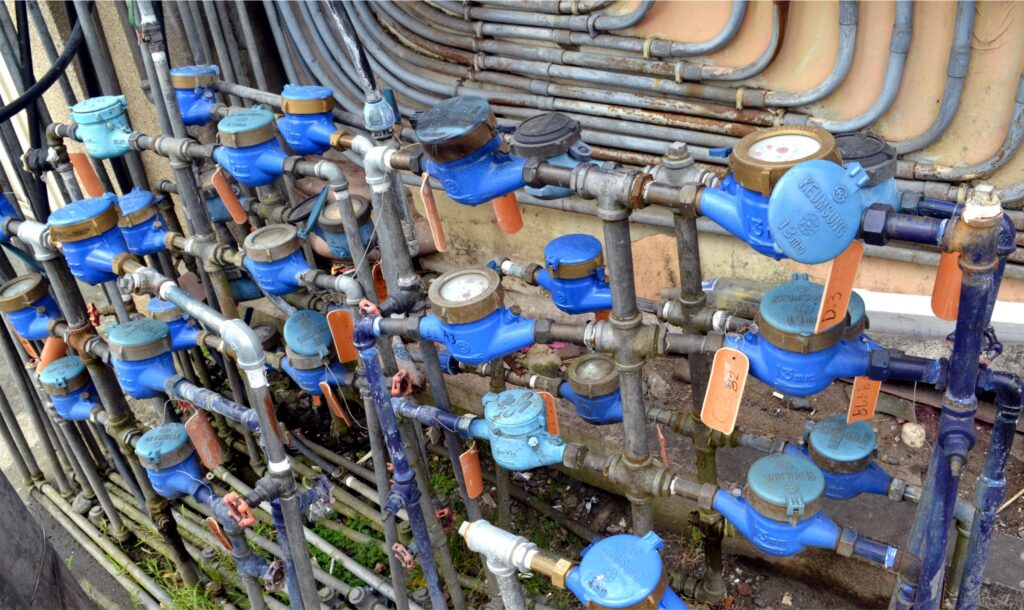Text and Photos by Henrylito D. Tacio
“It’s simply a question of survival. Thirst for water is an ignition to violence.” — Meir ben Meir, former Israeli water commissioner
***
Bansalan is a first-class municipality of Davao del Sur. But for two decades, it has still had a problem that is still going on: water. Not that people have no water but the lack of water, especially when it is needed most.
There are times when people have to use rainwater just to wash their clothes, clean their toilets, water their ornamentals, and in some instances, use it for bathing. There are also instances where people have to wake up in the middle of the night in order to take a pail of water or two, knowing that there would be no water gushing at the faucet in the morning.
So many politicians have tried to solve the problem, but until now, the problem is still around. But there’s good news. A lawyer, who is running for the council, is giving his attention to the water problem which the municipality is facing.
Atty. Kirby A. Villaraiz, who is running as municipal councilor this coming election, is keen on putting an end to the miseries most Bansaleños are experiencing. He could only do this if he won.
“I will file a resolution to conduct an investigation in the aid of legislation for the 20-year-old water problem in Bansalan,” he declared. “That, if in the investigation, there is a necessity to file cases for the management or any stakeholders in the district, I will personally do the same.”
Assuring words, these.
Not only that. “I will undertake measures if there is a need to strengthen the different barangay potable water system, provide technical assistance, revisit the policies and guidelines, and help the management for sustainable water to every concessionaire,” he said.
Bansalan is 75 kilometers away from Davao City, the country’s largest city in terms of land area (2,444 square kilometers). Right now, Davao City also experiences water shortages from time to time.
One of these days, Davao City residents may wake up without water flowing from their faucets. From an annual water demand of 50 million cubic meters (MCM) in 1995, this will increase to triple as the demand is forecasted to be 153 MCM.
Davao City has been cited in a study conducted by Japan International Cooperation Agency (JICA) as among the nine “water critical areas.” The eight other cities were Metro Manila, Metro Cebu, Angeles, Bacolod, Baguio, Cagayan de Oro, Iloilo, and Zamboanga.
Current water supplies in Davao City “fall well short of its population needs with the situation set to worsen in the coming years as the numbers rise,” said the Manila-based Asian Development Bank (ADB).
“Mismatches between supply and demand due to sharply rising populations, environmental pollution and shrinking water sources mean that without remedial action, Davao City could experience a water crisis by 2015,” said Paulus Van Klaveren, water supply and sanitation specialist in ADB’s Southeast Asia Department.
Compounding the problem is the tapping of groundwater by households and businesses, which “threatens to cause land subsidence and saltwater intrusion into legitimate supply sources.”
Right now, the water crisis is also a health crisis as the country is still experiencing the threats of coronavirus disease 2019 (COVID-19). The pandemic highlights the importance and preventive power of water. Good hygiene is the first line of defense against COVID-19.
Doctors and epidemiologists have continually emphasized the importance of handwashing during the COVID-19 pandemic. Health experts agree that washing hands with soap and water is the single most efficient measure against COVID-19.

Washing clothes 
Water meters
Aside from good hygiene, water is very important for man’s existence. As a general rule of thumb, a person can survive without water for only about three days.
“Drinking water does more than just quench your thirst – it’s essential to keeping your body functioning properly and feeling healthy,” the Mayo Clinic points out. “Nearly all of your body’s major systems depend on water to function and survive.”
Among the most important ways, waterworks in your body include the following: regulates body temperature, moistens tissues in the eyes, nose, and mouth, protects body organs and tissues, carries nutrients and oxygen to cells, lubricates joints, lessens the burden on kidneys and liver by flushing out waste products, and helps dissolve minerals and nutrients to make them accessible to your body.
“Water isn’t just a commodity. It is a source of life,” said Sandra Postel, director of the Massachusetts-based Global Water Policy Project.
Ideally, a person should have at least 50 liters of water each day to meet basic needs – for drinking, food preparation, cooking and cleaning up, washing and personal hygiene, laundry, house cleaning.
Postel believes water problems will trail climate change as a threat to the future of human beings. “Although the two are related, water has no substitutes,” she told us in an exclusive interview. “We can transition away from coal and oil to solar, wind and other renewable energy sources. But there is no transitioning away from water to something else.”
Although water is a renewable resource, it is also a finite one. Although we live in a world surrounded by water, less than 3% of the world’s water is fresh. More than 75% of the water we could use is frozen – mainly at the North and South Poles.
Of the remaining freshwater, 98% lies underground. People and land-dwelling animals can only access about 0.01% of all the world’s water. And that’s a fact!
According to the UN Food and Agriculture Organization, if all the earth’s water were to fit in a gallon jug (4 liters), the available freshwater would be just over one tablespoon.
“Water is not like oil: there is no substitute,” reminded Mark Rosegrant, a senior research fellow at the Washington-based International Food Policy Research Institute.
“World demand for water doubles every 21 years, but the volume available is the same as it was in the Roman times,” said Sir Crispin Tickell, former British ambassador to the United Nations and one of the organizers of the 1992 Earth Summit in Rio de Janeiro, Brazil. “Something has got to give.”

